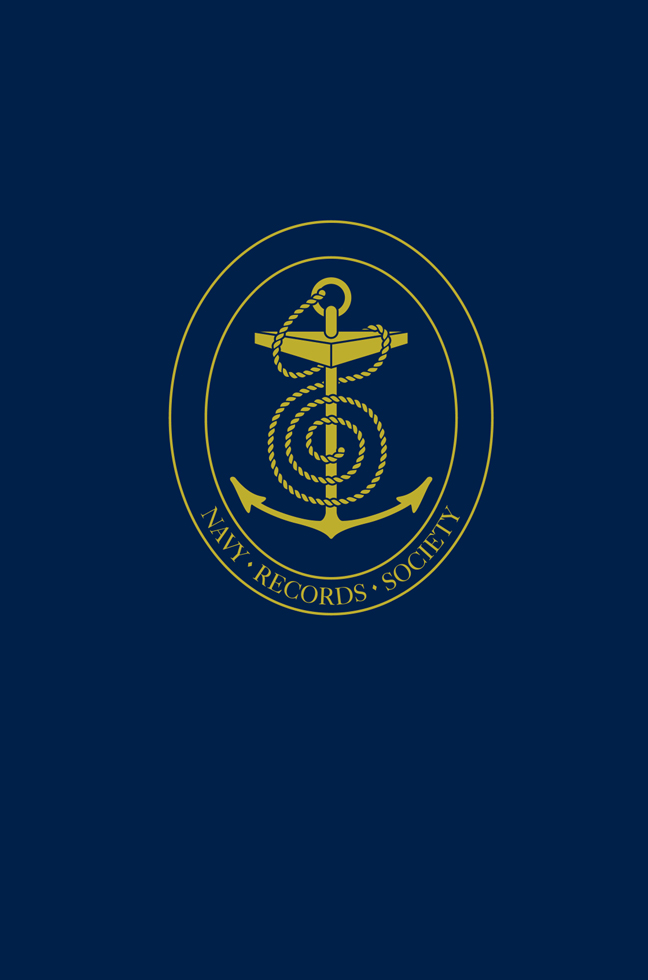Book contents
- Frontmatter
- Dedication
- Contents
- List of Plates
- Preface
- List of Abbreviations
- I The Provision of Ships for Edward I's Campaigns in Scotland, 1300–1306: Barges and Merchantmen
- II Lord Admiral Lisle and the Invasion of Scotland, 1544
- III The Journal of the Voyage of the Marigold to Iceland, 1654
- IV Neutrality, Sovereignty and Jurisdiction: Two Cases in the Admiralty Court, 1798–1805
- V The Supply of Timber for the Royal Navy, c.1803–c.1830
- VI The Journal of Lieutenant George Bedford, 1835–36: Surveying on the West Coast of Africa
- VII The Journal of Lieutenant Charles Knowles in the River Niger, 1864
- VIII The Diary of Signal Bosun Henry Eason: The Naval Brigade in the Zulu War, 1879
- IX The Autobiography of Chief Gunner Alexander Grant: HMS Lion at the Battle of Jutland, 1916
- X Australian Naval Defence: Selections from the Papers and Correspondence of Captain W. H. C. S. Thring, 1913–34
- XI The Relief of Admiral North from Gibraltar in 1940
- XII The Development of an Independent Navy for Australia: Correspondence between the First Naval Member and the First Sea Lord, 1947–59
- Contents of Previous Naval Miscellany Volumes
- Index
- Miscellaneous Endmatter
VIII - The Diary of Signal Bosun Henry Eason: The Naval Brigade in the Zulu War, 1879
Published online by Cambridge University Press: 05 March 2024
- Frontmatter
- Dedication
- Contents
- List of Plates
- Preface
- List of Abbreviations
- I The Provision of Ships for Edward I's Campaigns in Scotland, 1300–1306: Barges and Merchantmen
- II Lord Admiral Lisle and the Invasion of Scotland, 1544
- III The Journal of the Voyage of the Marigold to Iceland, 1654
- IV Neutrality, Sovereignty and Jurisdiction: Two Cases in the Admiralty Court, 1798–1805
- V The Supply of Timber for the Royal Navy, c.1803–c.1830
- VI The Journal of Lieutenant George Bedford, 1835–36: Surveying on the West Coast of Africa
- VII The Journal of Lieutenant Charles Knowles in the River Niger, 1864
- VIII The Diary of Signal Bosun Henry Eason: The Naval Brigade in the Zulu War, 1879
- IX The Autobiography of Chief Gunner Alexander Grant: HMS Lion at the Battle of Jutland, 1916
- X Australian Naval Defence: Selections from the Papers and Correspondence of Captain W. H. C. S. Thring, 1913–34
- XI The Relief of Admiral North from Gibraltar in 1940
- XII The Development of an Independent Navy for Australia: Correspondence between the First Naval Member and the First Sea Lord, 1947–59
- Contents of Previous Naval Miscellany Volumes
- Index
- Miscellaneous Endmatter
Summary
The Manuscript
The manuscript of Henry Eason's diaries was written over a period of about 30 years. It consists of 13 exercise books. His handwriting is not the best copperplate, but can be read without a great deal of difficulty and, once one is familiar with it, understood without effort or interpretation. The diary has been handed down within the Eason family, being now in the possession of Commander Christopher Eason, RN, Retd, OBE – his grandson. The current intention is that it will remain with the family. It is as accurately written as one could expect for a document mostly composed by the dim light of a mess deck in the days of transition from sail to steam. The only corrections used in this transcription are to rectify obvious mistakes such as the failure on occasion to begin sentences with capitals, failure to punctuate, and similar errors. His spelling is sometimes awry, and there is an occasional lapse of grammar, but it has not been necessary to correct these. There are also differences between the common usage of some words and phrases between his day and the present. Again, these have been allowed to stand, as they are an accurate representation of the times and do not obscure meaning. The most difficult words to present accurately are words that are probably nicknames for places, some of which obscure the real place name. One such is ‘Saccharine’, which is untraceable, and could not be Shakaskraal, which is too far north for the context in which it is used. Others are probably farms, which are not marked on any of the available maps. There are also various versions of place names, for example traditionalists called one of the rivers the Tugela, and the town of that name is given the same spelling. Probably the most accurate present-day spelling is Thukela. These variations come about because of the difficulty of rendering Zulu sounds into English spelling. The usage here is predominantly that contemporary with events, but more modern alternatives are often given in brackets.
Eason's language reflects the common prejudices of his day when writing about Africans. This feature has not been bowdlerised, as it represents the usage of the time.
- Type
- Chapter
- Information
- The Naval Miscellany , pp. 327 - 378Publisher: Boydell & BrewerFirst published in: 2024



